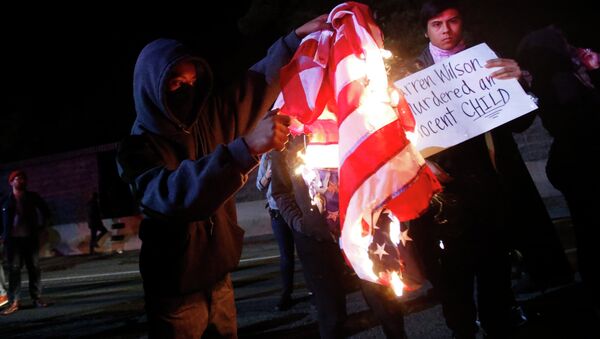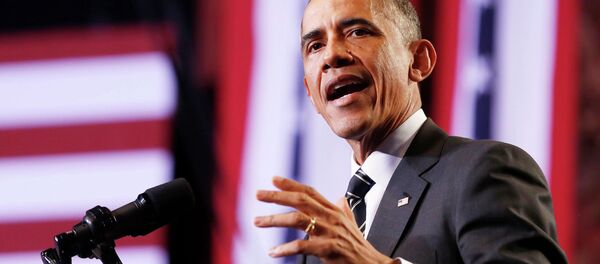WASHINGTON, November 26 (Sputnik) – Rhode Island police disproportionately arrest African American individuals at a rate that could foster racial tensions, similar to those in Ferguson, Policy Associate for the American Civil Liberties Union (ACLU) of Rhode Island, Hillary Davis, has told Sputnik.
"We were alarmed to find that in every single Rhode Island community profiled, the racial disparity in arrest rates exceeded that found in Ferguson," Davis said Tuesday, adding that "If these issues are left unchecked, it is only a matter of time before it is Rhode Island that is the subject of worldwide discussion."
According to Davis, extreme racial disparity in arrest rates across Rhode Island were found in data on 13 municipalities reported to the FBI in 2012.
Data from ACLU says that Rhode Island police departments that were analyzed, arrested African-American individuals at rates ranging from 3 to 9 times higher than the rate for those of a different race, which is a lot more than in Ferguson.
"The ACLU and the community are keenly aware that we are not insulated from the issues that have resulted in recent events in Ferguson," Davis said, adding that the civil union has been advocating for racial profiling prevention legislation for the past ten years, but lawmakers have repeatedly rejected ACLU proposals.
Such comprehensive legislation would go a long way toward repairing the broken relationship between law enforcement and the community, Davis claims, along with increased community dialogue.
"Increased conversation between the police and the community would also be a tremendous first step, but it is necessary for law enforcement to be willing to adjust their policies and procedures based on community feedback, something which has in many circumstances not occurred," Davis said.
In August, Michael Brown, an 18-year-old African-American, was shot dead by white police officer Darren Wilson in Ferguson, Missouri. The incident sparked a wave of riots and violent protests against police, while increasing tensions between the African-American community and US law enforcement.
Major protests erupted in the St. Louis suburb of Ferguson Monday over the grand jury's decision not to indict Wilson. Riot police responded with tear gas, batons and flash grenades. At least 13 people were injured in the St. Louis County as a result. Protests later erupted in other US cities.



